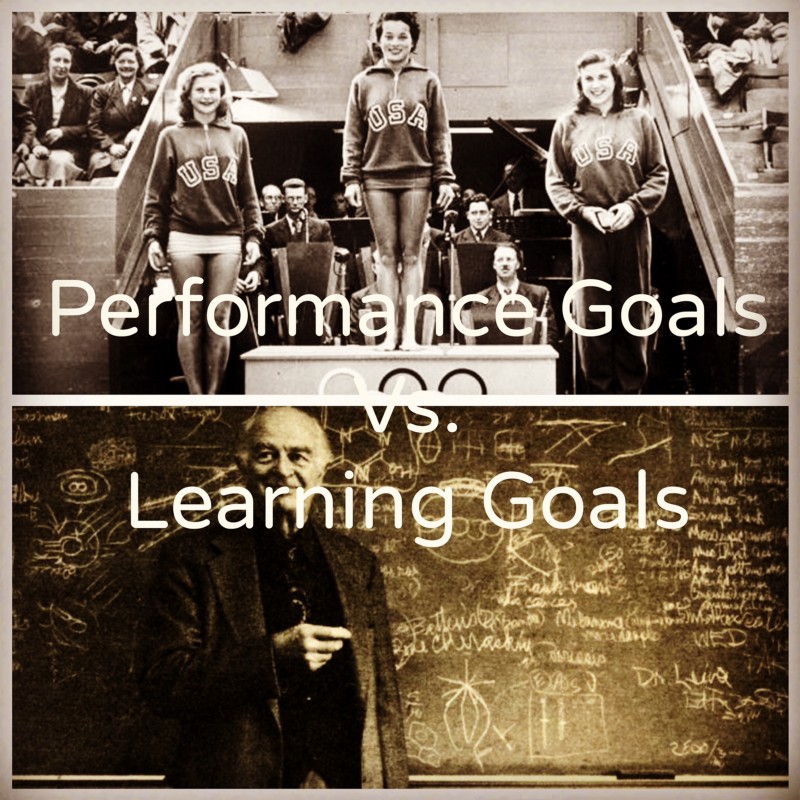Should You Have Performance Goals or Learning Goals?
As you may remember, we’ve been deconstructing Carol Dweck’s research on motivation, personality, and development. I was introduced to her research, then watched her Ted Talk, and was instantly intrigued by her thoughts and findings.
My life revolves around training people in fitness so they can improve their lives in as many ways as possible. A hopeful byproduct of this physical training is that my badasses will experience enhanced mental fortitude as well. This is where Carol Dweck’s work comes into play.
In the last blog entry, we discussed Fixed vs. Growth mindset. Here’s a quick recap: when we are confronted with a challenge, do we say to ourselves, “I can’t do it” or do we say, “I can’t do it YET.” What we are trying to teach ourselves, is to make the not so simple shift to the latter mindset — training ourselves to continue to have the desire to learn rather than to give up in the face of obstacles. In this same vein, Dweck’s work encourages us to think about whether we learn from criticism or whether we ignore feedback. What’s the old adage? “Life is 10% what happens to you and 90% how you react to it.”
As we learned, so much of how we react to different challenges will determine our fate. But now, let’s think about this: What are we looking to achieve? What are the goals that drive us?
This takes us to our next topic:
Performance Goals vs. Learning Goals — Is it about the journey or about the destination?

Performance goals (Focus on the Destination) are more about, just that, a performance. Entering into a task worried about being judged based on your competence and the outcome of your actions. If your goals are performance-based, you may be more concerned with looking good or smart than thinking about the steps you are taking. In this situation, you will go to all lengths to avoid participating in endeavors that make you look less than “perfect”.
Learning Goals (Focus on the Journey) are about increasing your competence. As Carol puts it, “Learning goals reflect a desire to learn new skills, master new tasks, or understand new things — a desire to get smarter.” When you have TRUE learning in mind, a real interest in becoming better at something, you receive feedback and incorporate it into your next steps. You appreciate the struggle, no matter how ugly it may look.
Lets look at the benefits and downfalls of each of these types of approaches and then figure out how we can use each of them to our advantage in the world of fitness.
First of all, ideally, we can use both. In fact, Carol says, “in the best of all possible worlds, students could achieve both goals at the same time.”
Benefits of Performance Goals
Motivation — If you’re going to have to perform in front of people, a sense of looking your best arises immediately. Being told you’re going to be in Men’s Health magazine in a month, or being tested on a 2000m row for time in 2 months. IF it means a lot to you, you’ll do all that you can to be ready for those one-time The key here is that these are one-time performances.
S.M.A.R.T goals are a good way to make sure your training will be effective. I’ll lay these out and relate them to an experience of mine. The experience I’ll use is the 2k row for time that I did for Gym Jones.
- Specific — The goal was very specific — row 2k in under 7 minutes.
- Measurable — As I practice, I can measure my row times and aim to make them faster — 7:02, 6:48, 6:52, etc. A non-measurable goal would be simply saying, “I want to row faster.”
- Achievable/Acceptable–The task put before me at the Gym Jones seminar was clear. And I accepted that challenge. If you are working with a trainer, or others, toward this goal you must be sure that you are all on the same page

4. Realistic — Rowing a 2k in under 7 minutes is pretty difficult, but my previous time was just over 7 minutes, so I knew that this goal was attainable.
5. Timely — I knew about this challenge at least a month prior to attending the seminar. And I had enough time to prepare — mentally and physically. On the other hand, this aspect of SMART goals emphasizes the need for a time-bound goal, so that you aren’t just working toward achieving something without an end-point in sight.
Problems with Performance Goals.
- You may be more inclined to cut corners or cheat because your focus is on doing well. Be honest, you have a report due in two weeks for a class that you weren’t interested in taking in the first place. Cliff Notes will give you adequate information to help you get the grade you need to pass. Are you going to read the books and truly understand the material or are you going to skim the Cliff Notes and write that report to get the grade you need to pass the class without learning a thing?
- You’re doing push ups in a competition and the judge is letting you go half-way as opposed to full range, putting you ahead of your competitors. Are you going to keep doing those reps half-way or are you going to jeopardize your standing in the competition and tell the judge to wake up. Performance goals may (sometimes subconsciously) lead you to more of a “do whatever it takes” mentality.

- There is a really difficult RKC Kettle Bell seminar coming up, but you heard that there is a test at the end to perform 100 kettle bell snatches within 5 minutes, in front of the whole group (not easy with a 24kg kettle bell). Your fear of failure at this task might prevent you from even participating in this great learning opportunity. If your focus is on performance goals, you may be more inclined to quit if you don’t feel like you can perform up to whatever the set standards may be. (MC Delight is doing a KB Snatch to the left)
Benefits of Learning Goals
- With Learning Goals, your interest is in truly learning the material. With the mindset of learning everything you can about a topic or skill, you set out to master it and don’t fear the struggles you will surely face along the way. There are no cutting corners, because your only interest is in long-term, true mastery.
- With these, there is a long-term focus. Who cares if you have a few stumbles on the way to true understanding or mastery of content or skills? When Learning Goals are your focus, your end result is the ability to perform under any circumstance or transfer your knowledge to any situation, because you have experienced enough through your learning to do so.
Disadvantages
- Learning Goals take time. Sometimes, you don’t have time. Competitions are a case in point — how many of us forget our perfect ROM when we’re going balls to the wall, completely exhausted, and looking for that top 5 finish?

- Learning goals don’t really have a limit. It’s kind of like being a life-long student. You have to commit to this kind of approach. For some goals, this is totally applicable and appropriate. Take Olympic lifting for example. Even the most masterful lifters still attend seminars and have trainers who show them new techniques for the snatch or better ways of what might seem to be the most simple aspects of what they do — Breathing? Posture? Set up? How to drop the bar? There is no end to learning to how to perfect their craft. But these lifters have usually dedicated their lives to doing so. Sometimes, we just want to lift and lift heavy!
Now, I want you to think about a goal you currently have for your fitness regime. Take that goal, and ask yourself these questions:
- Is it a performance goal or is a learning goal?
- If it’s a performance goal, then how are you going to take the right steps to optimize your performance? And are those steps S.M.A.R.T. (Specific, Measurable, Achievable, Realistic, Timely)?
- If it’s a learning goal, then what are you doing to make sure you don’t bore yourself to death or feel like this goal isn’t a never-ending cycle?
Remember my Instagram post that started this whole quest for knowledge in the first place? This was my question: DOES THIS SHIT GET ANY EASIER? Here’s the answer — It gets easier as you begin to accept the mindset that by making it easier, you’re only hurting your true self in the long run.







Responses